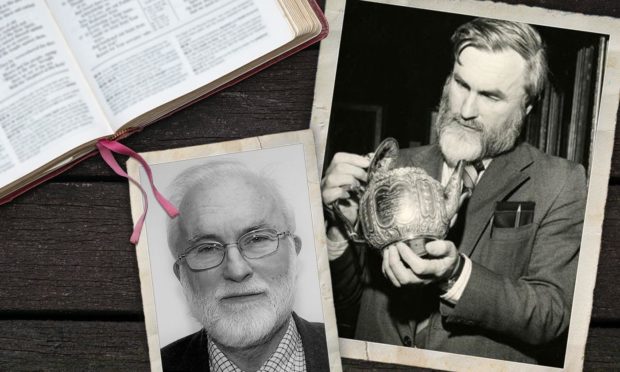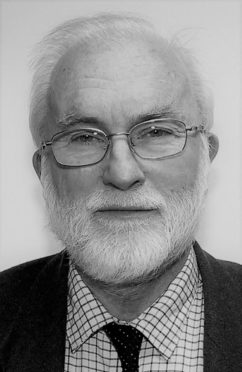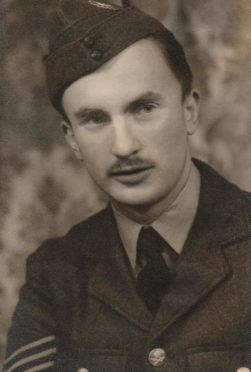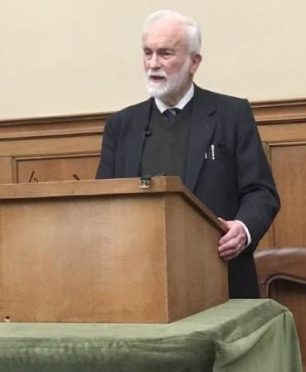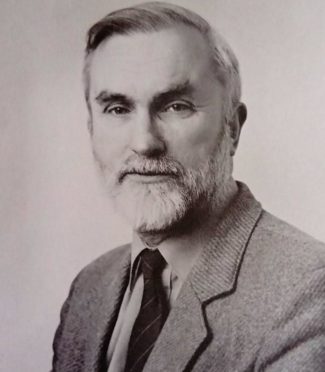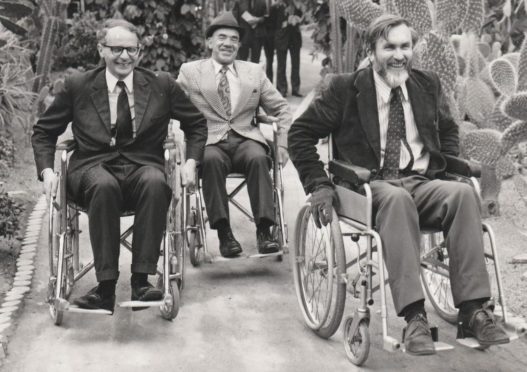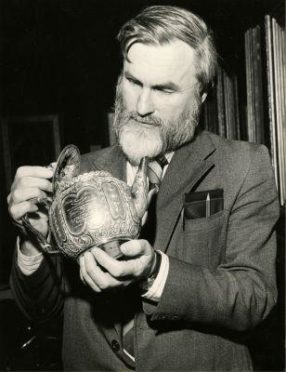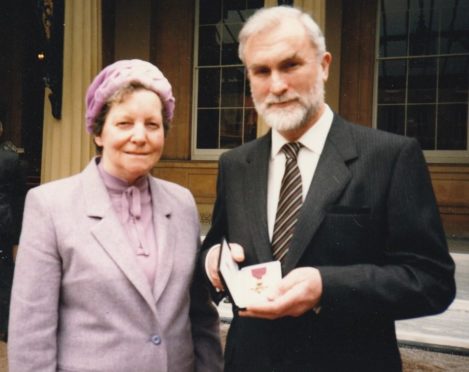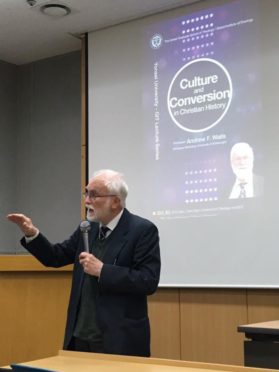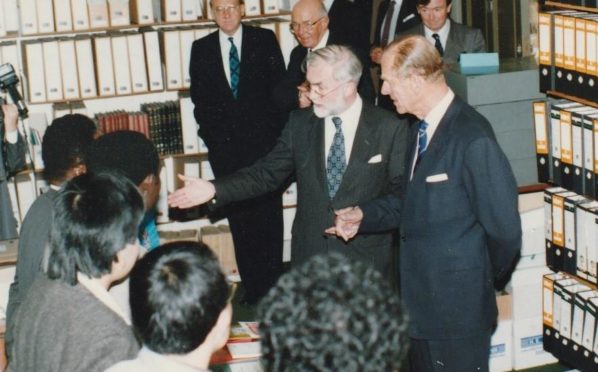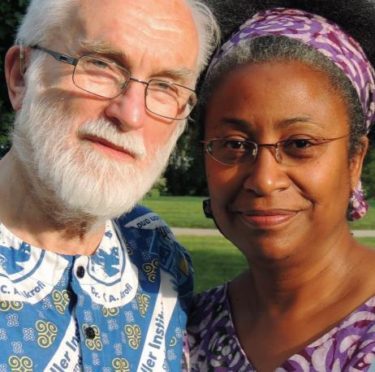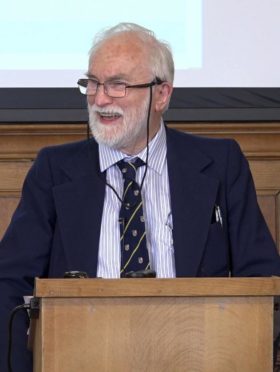A 2007 magazine article called Andrew Walls ‘the most important person you don’t know.’
An Oxford graduate he lectured at Harvard, Princeton and Yale but his most significant work began from a university office in Aberdeen.
As a city councillor he campaigned for better disabled access.
And a quiet generosity towards constituents in need was regularly betrayed by a pocket full of receipts discovered by his wife.
We look back on this remarkable man: Professor Andrew Finlay Walls OBE, who has died aged 93.
An exiled Scot
The son of Scots in search of work in England, Andrew Walls was born in New Milton, Hampshire on April 21st, 1948.
Later describing himself as an exile, faith was not a foregone conclusion for a man who’d make his mark in the field of Christian theology.
In an interview about his life he spoke of his parents, Andrew and Florence.
“I came from a working class background; a happy secure home.
“My mother maintained a devout Christian connection but my father had given up on it, believing church was no longer for him.”
A scholarship to Oxford
From there he moved to Bournemouth but by 17 he’d won a scholarship to Oxford.
Studying Divinity at the University’s Exeter College, in 1948 he gained a first class degree.
Yet to complete his national service, post-grad studies were interrupted by a stint in the Royal Air Force.
What initially seemed like a pause on his work would actually be a catalyst in the form of a female RAF sergeant from Kent.
A partner in life and ministry
Doreen Harden, who was working in RAF supplies, would go on to become Andrew’s ‘commanding officer’ as he affectionately called her.
They married in 1953 in Hamstreet, Kent, the same year he became a Methodist preacher.
And for half a century he’d remain on the Methodist circuit in North of Scotland.
Andrew worked for a Cambridge publishing house while Doreen was at home with their children, Christine and Andrew.
African adventures
In 1957 Andrew began work at Fourah Bay College, Sierra Leone.
A three year post would follow at the University of Nigeria, Nsukka, as head of the Department of Religion.
These postings were a pivotal time for him.
He was the white, British academic there to teach African students about a Western religion with its roots in colonialism.
But would discover that those in the African continent had a history and transformative Christian faith all of their own.
The formation of what academia calls ‘World Christianity’ began then: from the heart and the pen of Andrew Walls.
Leaving Nigeria as rumours of a civil war began, Scotland beckoned.
Aberdeen University
In 1966 they moved to Aberdeen where Andrew became Riddoch Lecturer in Comparative Religion.
In 1970 he established the first department of religious studies in a Scottish university,
and by 1979 was promoted to professor.
Known affectionately as ‘the Prof’, he also became involved in serving the city where he’d made his home.
Parks and Recreation
In 1976 he was elected to Aberdeen City Council as the member for Cairngorm ward.
He was also Master of Kirks and Bridgeworks and subsequently, a role as convener of museums, parks and recreation would see him campaign for better access for disabled people in the city.
Under Walls’ tenure he also helped establish a maritime museum and would represent the Labour Party in the 1970 parliamentary election for the Banffshire constituency.
His friend and colleague Michael Dyer said: “It was for his contribution to the Arts he received an OBE in 1978.
“It was a decoration whose title seemed remarkably at odds with his life’s work in emphasising the significance of Christianity’s relocation to the non-Western de-colonised world.”
Never-the-less he took his role in public office seriously.
Pockets full of receipts for electrical appliances were often discovered by Doreen in response to someone in his constituency expressing a dire need.
“These were outwith election times with no worry of such help being misconstrued.
“But he was always helping people, and was even known for bringing people to the house where my mother would serve them scotch broth!” Andrew added.
New opportunities in Edinburgh
In 1986 Andrew moved his employment to Edinburgh University.
The work he had begun in Aberdeen, as director of the Centre for the Study of Christianity in the Non-Western World which he established, went with him.
Doreen helped manage this growing organisation.
Though remaining a member of Crown Terrace Methodist Church in Aberdeen, his work gained global attention.
He formed partnerships with some of the world’s most prestigious universities.
“I have lectured in all six continents,” he said of his own work, “and been visiting Professor of World Christianity at Yale and at Harvard Universities.”
This would later extend to Princeton Theological Seminary and the Akrofi-Christaller Institute of Theology, Mission and Culture.
Liverpool Hope University named the Andrew Walls Centre for African and Asian Christianity in his honour.
And he was still working there on a part-time basis.
His affiliation with City Seminary of New York also saw the Walls-Ortiz Gallery named after him.
He also worked with the Overseas Ministry Study Centre (OMSC) now at Princeton, but previously in New Haven for more than 30 years.
He remained at Edinburgh University until 1997.
Great sadness and surprising joy
As they progressed in years Doreen suffered poor health.
In 2009 after a stroke and 58 years of marriage she passed away.
Andrew, despite a heart condition of his own, had been her caregiver.
“My parents had such a strong faith, and a strong relationship, it was a terribly sad time for us as a family,” Andrew added.
However, unexpected joy was just around the corner.
Brian Stanley of Edinburgh University said: “To the delight of his friends, in 2012 Andrew announced his engagement to Dr Ingrid Reneau, from Belize.
“They were married in Andrew’s home congregation in Aberdeen, on July 23, 2012.”
Andrew added: “We credit my father’s longevity with the fact he remarried.”
He was also elated on becoming a grandfather to Alice, in 2018.
Good and faithful servant
Tributes for the acclaimed scholar summarise his life and character:
He had an inability to say no that benefited those around him;
A man with a relentless commitment to his work and his faith;
Demonstrable passion for preaching and a devotee of the arts;
The narrative on Christian history changed because of him.
He’s a father, husband, grandfather, teacher and friend who will be greatly missed.
Andrew added: “I would sum up my father as a man of deep integrity who influenced those around him, but especially his family.”
